Related Research Articles

Herbert George Wells was an English writer. Prolific in many genres, he wrote more than fifty novels and dozens of short stories. His non-fiction output included works of social commentary, politics, history, popular science, satire, biography, and autobiography. Wells is now best remembered for his science fiction novels and has been called the "father of science fiction."
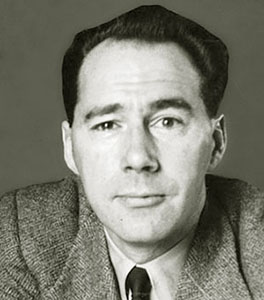
John Wyndham Parkes Lucas Beynon Harris was an English science fiction writer best known for his works published under the pen name John Wyndham, although he also used other combinations of his names, such as John Beynon and Lucas Parkes. Some of his works were set in post-apocalyptic landscapes. His best known works include The Day of the Triffids (1951), filmed in 1962, and The Midwich Cuckoos (1957), which was filmed in 1960 as Village of the Damned, in 1995 under the same title, and again in 2022 in Sky Max under its original title.
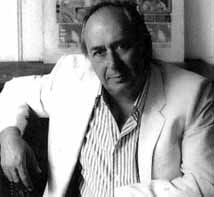
James Graham Ballard was an English novelist, short story writer, satirist, and essayist known for provocative works of fiction which explored the relations between human psychology, technology, sex, and mass media. He first became associated with the New Wave of science fiction for post-apocalyptic novels such as The Drowned World (1962), but later courted controversy for the experimental short story collection The Atrocity Exhibition (1970), which included the 1968 story "Why I Want to Fuck Ronald Reagan", and the novel Crash (1973), a story about a renegade group of car crash fetishists.

John Edward Masefield was an English poet and writer, and Poet Laureate from 1930 until 1967. Among his best known works are the children's novels The Midnight Folk and The Box of Delights, and the poems The Everlasting Mercy and "Sea-Fever".
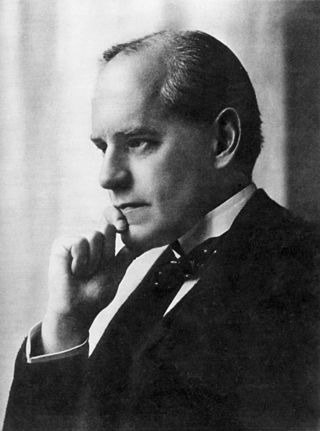
John Galsworthy was an English novelist and playwright. He is best known for his trilogy of novels collectively called The Forsyte Saga, and two later trilogies, A Modern Comedy and End of the Chapter. He won the Nobel Prize in Literature in 1932.

Enoch Arnold Bennett was an English author, best known as a novelist who wrote prolifically. Between the 1890s and the 1930s he completed 34 novels, seven volumes of short stories, 13 plays, and a daily journal totalling more than a million words. He wrote articles and stories for more than 100 newspapers and periodicals, worked in and briefly ran the Ministry of Information in the First World War, and wrote for the cinema in the 1920s. Sales of his books were substantial and he was the most financially successful British author of his day.

Henry James was an American-British author. He is regarded as a key transitional figure between literary realism and literary modernism, and is considered by many to be among the greatest novelists in the English language. He was the son of Henry James Sr. and the brother of philosopher and psychologist William James and diarist Alice James.

Sir Anthony Hope Hawkins, better known as Anthony Hope, was a British novelist and playwright. He was a prolific writer, especially of adventure novels but he is remembered predominantly for only two books: The Prisoner of Zenda (1894) and its sequel Rupert of Hentzau (1898). These works, "minor classics" of English literature, are set in the contemporaneous fictional country of Ruritania and spawned the genre known as Ruritanian romance, books set in fictional European locales similar to the novels. Zenda has inspired many adaptations, most notably the 1937 Hollywood movie of the same name and the 1952 version.

Mrs. Dalloway is a novel by Virginia Woolf published on 14 May 1925. It details a day in the life of Clarissa Dalloway, a fictional upper-class woman in post-First World War England. It is one of Woolf's best-known novels.
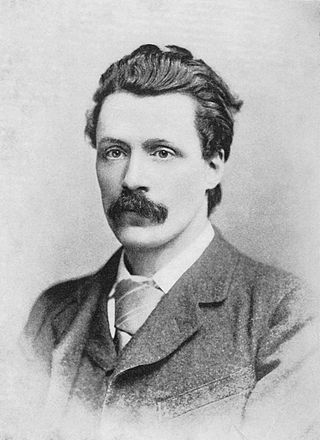
George Robert Gissing was an English novelist, who published 23 novels between 1880 and 1903. His best-known works have reappeared in modern editions. They include The Nether World (1889), New Grub Street (1891) and The Odd Women (1893).

Helen Clark MacInnes was a Scottish-American writer of espionage novels.

Vasily Semyonovich Grossman was a Soviet writer and journalist.

Three Men in a Boat (To Say Nothing of the Dog), published in 1889, is a humorous account by English writer Jerome K. Jerome of a two-week boating holiday on the Thames from Kingston upon Thames to Oxford and back to Kingston. The book was initially intended to be a serious travel guide, with accounts of local history along the route, but the humorous elements took over to the point where the serious and somewhat sentimental passages seem a distraction to the comic novel. One of the most praised things about Three Men in a Boat is how undated it appears to modern readers – the jokes have been praised as fresh and witty.
Rex Warner was an English classicist, writer, and translator. He is now probably best remembered for The Aerodrome (1941). Warner was described by V. S. Pritchett as "the only outstanding novelist of ideas whom the decade of ideas produced".

Margaret Oliphant Wilson Oliphant was a Scottish novelist and historical writer, who usually wrote as Mrs. Oliphant. Her fictional works cover "domestic realism, the historical novel and tales of the supernatural".
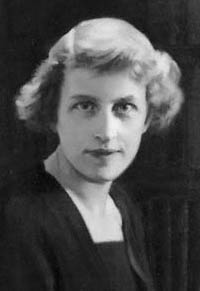
Winifred Holtby was an English novelist and journalist, now best known for her novel South Riding, which was posthumously published in 1936.
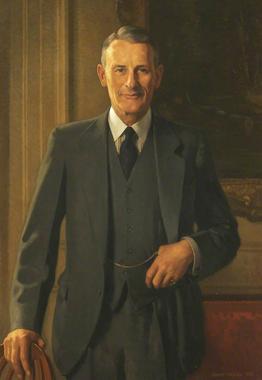
Sir John Cecil Masterman OBE was a noted academic, sportsman and author. His highest-profile role was as Vice-Chancellor of the University of Oxford, but he was also well known as chairman of the Twenty Committee, which during the Second World War ran the Double-Cross System, controlling double agents in Britain.

Ruhleben internment camp was a civilian detention camp in Germany during World War I. It was located in Ruhleben, a former Vorwerk manor 10 km (6.2 mi) to the west of Berlin, now split between the districts of Spandau and Charlottenburg-Wilmersdorf. The camp was originally a harness racing track laid out north of the Berlin-Hamburg Railway line in 1908.
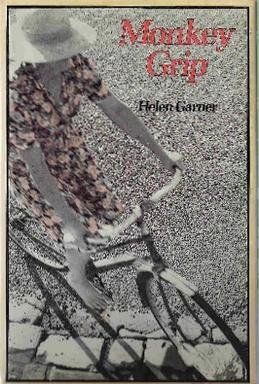
Monkey Grip is a 1977 novel by Australian writer Helen Garner, her first published book. It initially received a mixed critical reception, but has now become accepted as a classic of modern Australian literature. The novel deals with the life of single-mother Nora, as she narrates her increasingly tumultuous relationship with a flaky heroin addict, juxtaposed with her raising a daughter while living in share houses in Melbourne during the late 1970s. A film based on the novel, also titled Monkey Grip, was released in 1982. In the 1990s, when critics identified the Australian literary genre of grunge lit, the book was retrospectively categorized as one of the first examples of this genre.

Gurcharan Das is an Indian author, who wrote a trilogy based on the classical Indian goals of the ideal life.
References
- ↑ The Oxford Companion to Edwardian Fiction. 1997.
- ↑ "In Ruhleben Camp: A magazine by any other name… – Et Seq: The Harvard Law School Library Blog". etseq.law.harvard.edu. Retrieved Sep 3, 2022.
- ↑ "Francis Gribble, novelist, returned from Ruhleben". Alexandria Gazette. 14 April 1916. p. 1.